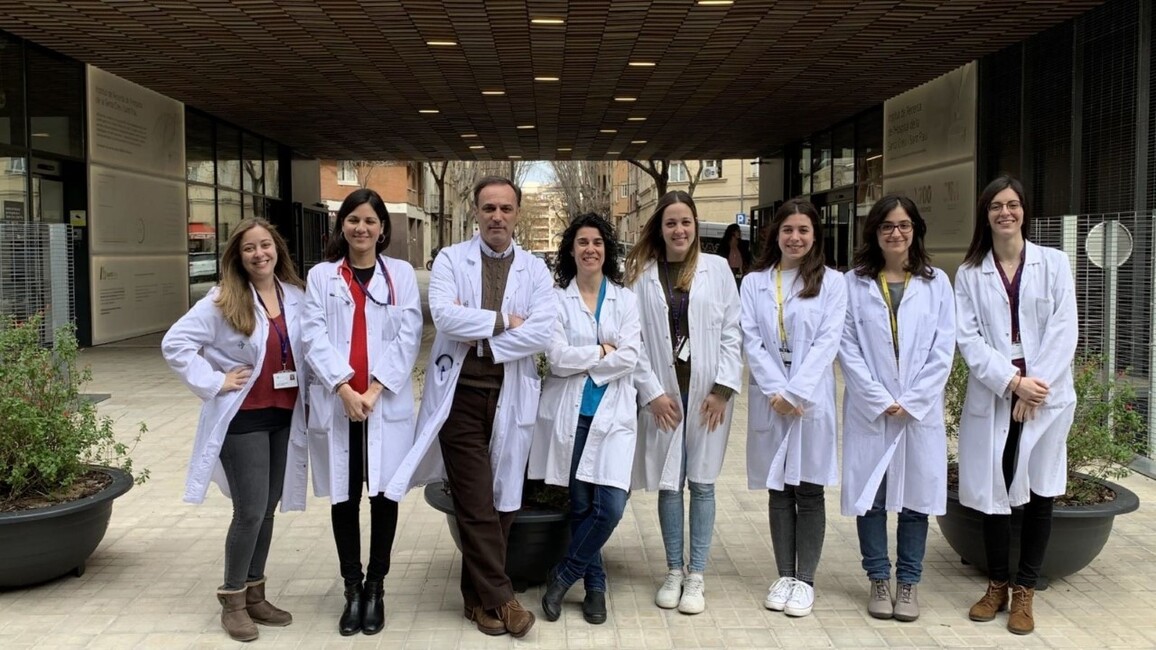Phase I of Europe's first self-produced CAR-T30 clinical trial for Hodgkin's and non-Hodgkin's lymphoma ends
The first trial with a CAR-T immunotherapy drug produced in Sant Pau, a pioneer in Europe, for the treatment of classic Hodgkin's lymphoma and non-Hodgkin T lymphoma CD30 + in relapse or refractory, has successfully completed its Phase I . The project is led by Dr. Javier Briones, Head of the Clinical Hematology Unit of the Hematology Service of the Hospital de Sant Pau and Head of the Cell Immunotherapy and Gene Therapy Research Group of the Research Institute of the Hospital de Sant Pau - IIB-Sant Pau and the Josep Carreras Leukaemia Research Institute.

Phase I of the trial, approved by the Spanish Agency for Medicines and Health Products (AEMPS), involved 10 patients refractory to all approved conventional treatments, from various autonomous communities and other European countries. The objectives of the study were focused on safety and setting the optimal dose. In Phase II, at least 20 more patients will be included. According to Dr. Briones "The results are being analyzed and we need to continue to monitor them, but we are very pleased with the safety and effectiveness data."
CAR-T cell drugs from Sant Pau are made from the T lymphocytes of the same patient and incorporate a modification, introduced by genetic engineering techniques, which allows them to express a molecule capable of recognizing and enhancing cancer cells. tumor destruction. This molecule is the "chimeric receptor antigen" and is therefore called CAR-T cells.
The CAR-T developed by researchers at Sant Pau and the Josep Carreras Leukaemia Research Institute is an advanced therapy drug made from a type of T lymphocyte called a "memory" of the patient's own. Within the body, these cells are few, but extremely effective and are usually responsible for intervening in the body's defense against successive infections of the same pathogen. These cells have a powerful cytotoxic effect, as well as being toxic to other cells they bind to, and they live in our bodies for many years."We select these memory T lymphocytes from the same patient and equip them with a "weapon" that, each time they detect one of these CD30 antigens, the ones that express the tumor cells of the lymphoma, eliminate them. Thanks to its long life, a "detector and eliminator" of any recurrent lymphoma cell would remain in the patient's body", explains Dr. Javier Briones, clinical manager of the project.
The Research Institute of the Hospital de la Santa Creu i Sant Pau - IIB Sant Pau, in collaboration with the Blood and Tissue Bank of Catalonia, obtained in 2020 the certificate of compliance with Correct Manufacturing Standards for the production of an advanced therapy drug. This certification, issued by the Spanish Agency for Medicines and Health Products (AEMPS) of the Ministry of Health, allows the production and quality control of cellular drugs type CAR-T in the white room, a facility specially designed for the development of advanced therapy drugs that allows Sant Pau researchers to offer innovative treatments to their patients.
Various organizations and foundations have supported the Sant Pau project. The Josep Carreras Foundation against Leukaemia and the Josep Carreras Leukaemia Research Institute have strongly supported the project with the acquisition of a significant part of the equipment and the provision of funds for the production of drugs for the first 10 patients. In this sense, the Josep Carreras Institute acquired two new cell production equipment that have been located in Sant Pau. For the purchase of the first, the Josep Carreras Foundation launched a fundraising campaign in 2018 entitled: "The factory of unstoppable cells". In another campaign in 2019, the Josep Carreras Foundation raised more than one million euros to promote the start of this trial. Other organizations such as the Carlos III Health Institute, the La Caixa Foundation and the Spanish Association Against Cancer (AECC) have also supported the development of this research project.